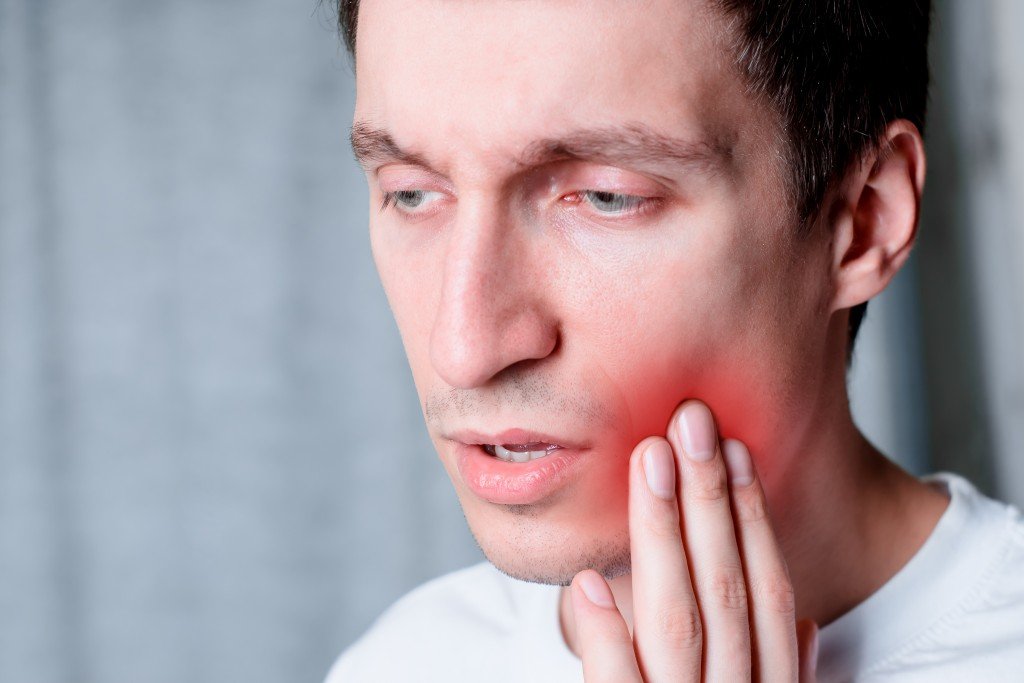An emergency trip to the dentist is the last thing we need while social distancing measures is still in effect, so maintaining our oral health is crucial. Your skilled and trustworthy dentist may be more than willing to mend your tooth issues, but considering that isn't very safe to go out these days, it's best for the both you if you can keep your mouth healthy so that you won't have to risk contracting or carrying the virus.
So if you tend to suffer from toothaches often, knowing some effective home remedies will be beneficial, and so do avoiding the foods that are causing it. Below are helpful at-home oral care tips to prevent a dental emergency during this period:
1. Rinse your mouth with salt and water to disinfect it
If you suffer from oral wounds and inflammation, gargle with salt and water to heal and disinfect them. This solution also works for loosening food particles that may have stuck in between your teeth, so treat this as a go-to alternative for flossing if you've run out of dental floss.
You don't need a lot of salt to make this effective. Simple mix 1/2 tablespoons of any salt into a glass of warm water, and you're good to go.
2. Use a cold compress to relieve tooth or gum pain
If you knocked your teeth somewhere, immediately apply an ice cube or two wrapped in a face towel to the affected area. Repeat every two hours until the pain, swelling, and inflammation subside.
3. Use a garlic paste to kill bacteria in the mouth
A toothpaste may work pretty well in killing oral bacteria, but garlic has stronger antibacterial properties that also relieve toothache.
Crush a garlic clove to create a paste, then apply it to the painful area. You may add in a bit of salt to the garlic paste to have disinfectant. If you can manage to chew, simply nibble on a clove of fresh garlic, and the pain would subside.
4. Get enough vitamin D
If you think that you might develop a cavity, prevent it by taking vitamin D supplements. A 2013 study has found that vitamin D can significantly reduce the chances of cavities occurring. The vitamin may also help mineralize the tooth enamel, making it stronger and less likely to develop a cavity.
5. Avoid eating foods that worsen sensitive teeth
You'd know that you have sensitive teeth if eating and drinking anything hot, cold, acidic, sticky, or sugary give you pain. It might be impossible to avoid hot and cold food and drink altogether, but the rest can definitely be out of your food choices, especially the following:
- Soda – This has sugar and acid, doubling the pain it causes.
- Ice cream – The coldness and sugar in ice cream aggravate tooth sensitivity.
- Hot coffee – Hard to give up, so just add milk to your hot coffee to reduce its temperature and acidity.
- Sticky candy – They may stimulate the nerves in the dentin, resulting in pain and discomfort.
- Citrus fruits – One word: acid.
- Tomato – Sadly, this healthy fruit is also acidic.
6. Avoid foods that can hurt your teeth and gums
Chewing ice, hard candy, and sticky candy is harsh on your teeth that it can chip it. Also go easy on the booze, sports drinks, coffee, and chips, as they contain substances including sugar and starch that cause plaque and oral infection.
Following these tips will surely keep your mouth healthy and pain-free, reducing the chances of a dental emergency happening. But still, visit your dentist after the quarantine because there may be issues you've missed that only their trained eyes can spot.

